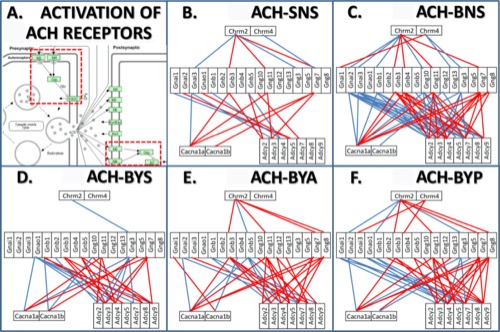Abstract
Inflammation is an established etiopathogenesis factor of infantile spasms (IS), a therapy-resistant epileptic syndrome of infancy. We investigated the IS-associated transcriptomic alterations of neurotransmission in rat hypothalamic arcuate nucleus, how they are corrected by antiinflamatory treatments and whether there are sex differences. IS was triggered by repeated intraperitoneal administration of NMDA following anti-inflammatory treatment (ACTH or PMX53) or normal saline vehicle to prenatally exposed to betamethasone young rats. We found that treatments with both ACTH and PMX53 resulted in substantial recovery of the genomic fabrics of all types of synaptic transmission altered by IS. While ACTH represents the first line of treatment for IS, the even higher efficiency of PMX53 (an antagonist of the complement C5a receptor) in restoring the normal transcriptome was not expected. In addition to the childhood epilepsy, the recovery of the neurotransmission genomic fabrics by PMX53 also gives hope for the autism spectrum disorders that share a high comorbidity with IS. Our results revealed significant sex dichotomy in both IS-associated transcriptomic alterations (males more affected) and in the efficiency of PMX53 anti-inflammatory treatment (better for males). Our data further suggest that anti-inflammatory treatments correcting alterations in the inflammatory transcriptome may become successful therapies for refractory epilepsies.
